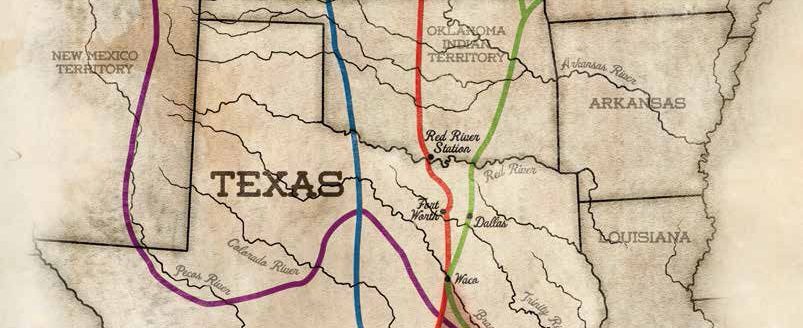Oklahoma CareerTech offering meat-processing classes
We all know cattle prices have been down, but the number of available skilled meat processing laborers has also decreased on account of the global COVID-19 pandemic, and the demand for more meat processors has become blatantly clear.
The Oklahoma Department of Agriculture, Food and Forestry, along with meat industry leaders have developed up a program with Oklahoma CareerTech, the state’s system of career and technology education, to offer meat-processing classes to those looking for employment in the meat industry. The CareerTech system offers programs and services in 29 technology center districts operating on 58 campuses, 394 K-12 school districts, 16 skills centers campuses that include three juvenile facilities and 32 adult basic education service providers.
“One of the challenges that has been identified is the need for a qualified workforce, so we were brought to the table at the end of May and asked what specific courses and programs were out there that could meet the needs for meat processors, whether they want to start up a new facility or expand a current facility,” said Marcie Mack, state director of the Oklahoma Department of Career and Technology Education. “In that conversation, we looked to specific areas we could deploy in a very timely manner, so by the end of June we worked to set up three online courses that individuals across the state could enroll in and gain the entry level skill set and certification from the American Meat Association to help fill that workforce gap.”
The courses are available right now and are in a self-paced, online learning environment allowing students to work through the classes at their own pace. Each course is offered at a fee of $75 per class and focuses on a different subunit of meat processing including: food safety and science, meat evaluation and culinary meat selection and cookery. According to CareerTech, a fourth class called hands-on meat processing will soon be added to list of courses. Classes are open to secondary and adult students.
“The courses are primarily set up for entry level into the workforce,” Mack said. “Some of the second level pieces that we’re looking at implementing into the curriculum are more classroom and hands-on instruction, which will get more into carcass fabrication and potentially touch on value-added processing that build upon the online courses that are out there right now.”
Mack said CareerTech has offered similar educational opportunities in the past through high school agriculture education classes and FFA Career Development Events. Additionally, Western Technology Center in Burns Flat, Oklahoma, has offered basic meat processing classes. Mack said a meat processing program through CareerTech was also available to the inmates at Jackie Brannon Correctional Center in McAlester, Oklahoma, in cooperation with the Department of Corrections.
“So we have had curriculum in the past specifically to meat processing in various areas, but demand and interest in that particular area, as it decreased across the state, meant they were unable to sustain those programs and so they transitioned into other curriculum areas,” she explained.
However, this new platform for meat educational classes is expected to reach more students and hopefully solve some of Oklahoma’s workforce issues, including the rural labor shortage and promote more commodity processing in the state.
“When we look at the more than 100 processing plants across Oklahoma, you will find that they are located in various rural areas in the state, so as we look at workforce and qualifications, this provides a training avenue so people will be able to obtain employment in rural areas,” she said.
Oklahoma Secretary of Agriculture Blayne Arthur stated the offering of these classes could solve several problems across the board for the Sooner State. Mack said she believes programs that educate more qualified workers for meat processing in Oklahoma is one of the answers to solving some of the issues contributing to the packing plant plagues of 2020.
“Not only does it give the avenues to provide future and current employees with a great skillset, it also brings an awareness to the industry so that individuals know all of the various pieces that go into the processing,” Mack explained. “I think the awareness piece is just as critical for making sure that we’re meeting that demand as it is for the training of the employees.”
As the United States continues to struggle with the effects of the pandemic and the consequences of mandatory shutdowns and the breakdown of our meat processing system, the best path to recovery is mending the weaknesses noted during the height of the pandemic and coming up with solutions to prevent them in the future.
“When we look at how this is set up, the primary response and outline for this and the alignment of the curriculum is through an industry demand so we’re very fortunate that the meat industry and the ODAFF reached out to us to fill this need within the workforce,” Mack said. “We are working with them very diligently to look for both short and long-term solutions as we continue to meet the demands and need for the meat processing industry in Oklahoma.”
To learn more about the meat processing courses available through CareerTech, visit www.okcareertech.org.
Lacey Newlin can be reached at 620-227-1871 or [email protected].

